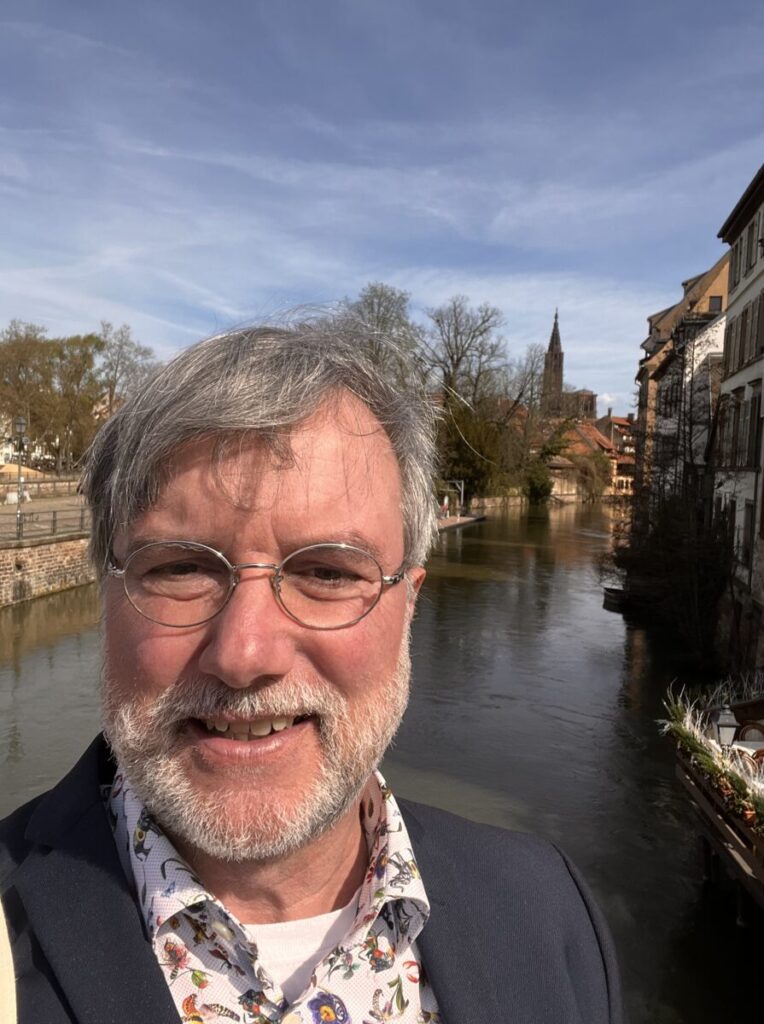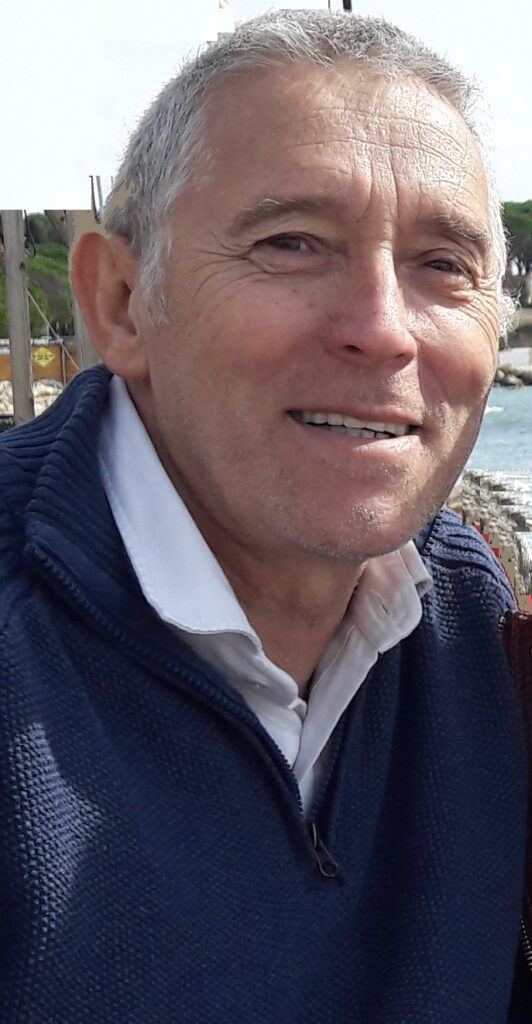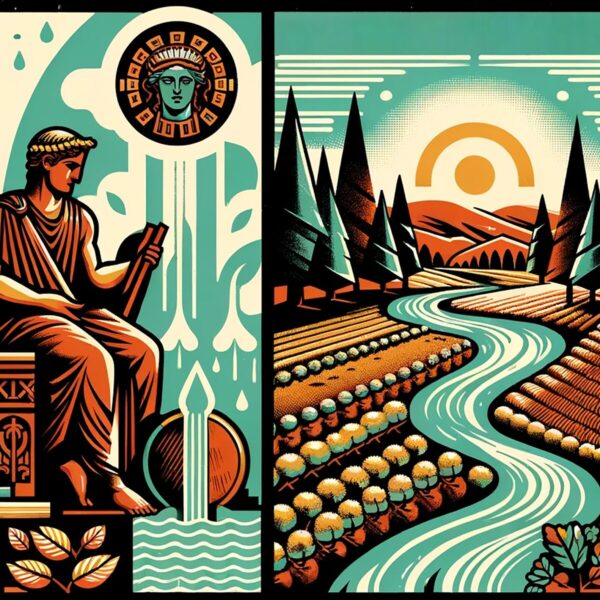Global warming disrupts the water cycle, and human activity exacerbates the shortage of fresh water. Tensions for the control and monopolization of this vital resource are increasing. Similar to oil in the 20th century, water is becoming a source of conflicts. Can we find in the past, especially in regions with river cultures, devices that allow resolving tensions among different stakeholders?
The theme is addressed in three forums in a dialogue between scientists: Karl Matthias Wantzen and Bernard Mossé.
Sequence 2 - The Mediterraneanization of Northern Europe requires a review of the North/South cooperation
Bernard Mossé: Among all the consequences, undoubtedly irreversible, of climate change, we are witnessing what is called the "Mediterraneanization" of Northern Europe. Can you tell us a word about it? Where do we stand today and what should we expect in the decades to come?
Karl Matthias Wantzen: Indeed. Mediterranean countries should invite all mayors from more northern countries to visit them and observe their situation, especially during scarcity phases, with drought, forest fires, and also events like the one we saw in the Mediterranean last September: in Libya, double the annual rainfall fell in 48 hours, resulting in 3500 deaths. And other tragedies in Greece and Spain. It was truly catastrophic. The Mediterraneanization of Northern Europe means that the climate conditions already known for hundreds of years, even millennia, in the Mediterranean, are moving northward. We no longer have well-balanced rainfall throughout the year, and at the same time, we are seeing more and more dried-up rivers, with greatly reduced flow, water warming leading to diseases due to bacterial overgrowth, etc. And also catastrophic torrential episodes as seen in Germany or Belgium two years ago, with 134 people dead in a country where flood prevention was thought to work. But events surpass our imaginations, and a risk culture needs to be developed, particularly through North/South exchanges. Known events as "unique" are starting to become "regular." Normality is changing. It is not only necessary for populations further north to learn from southern populations to prevent disasters, but solidarity between them must also be organized. Because shortages hit much harder in Mediterranean countries. One thing that is not emphasized enough is that we really need to anticipate abandonments: abandoning certain crops and practices, but also certain agricultural regions. For example, no longer growing strawberries and raspberries in Morocco for European mouths in winter... In terms of water management, cultural practice, and solidarity, this is absurd.
Bernard Mossé: In this exchange of knowledge, specifically from South to North, do you see other techniques, other devices that the North could be inspired by?
Karl Matthias Wantzen: Firstly, recognizing that the water resource is not inexhaustible and managing scarcity is what the North can already learn; notably being much less greedy in agricultural and even industrial production. Most big business owners have already understood this, but I would say it has not yet been integrated at the executive, managerial, and employee levels. Users in general still believe that water will always come out of their tap and that they can waste it as they please. Since water remains very cheap in those regions, wasting it has very little impact on their pockets. I am not suggesting that water should be made much more expensive, but perhaps wasting it should be penalized. That would be a good idea. But it mainly means that we need to be aware that, regardless of our practices, humans always have an impact on water. We need to measure this negative ecological footprint. How much do I need to save to help improve the water situation? We must always consider the nature's water needs, which have been completely ignored.
But now that we are beginning to destroy the foundations of our survival, as disasters follow one another and accelerate, we are starting to reflect. For example, in the mountains like the Vosges and the Black Forest, we now see hectares and hectares of dead trees because it is too dry, because we have planted the wrong species. But we also have other problems, for instance, the drainage that leads water downhill and away from the watershed areas that are crucial for the water cycle. It is necessary to maintain, restore, and reestablish wetlands, which are the true sponges of the landscape, filling the aquifers and providing water during dry periods. We need to change even our meteorological vocabulary. On television, they say: "The weather will be bad, it will rain this week." On the contrary, we should say: "It will rain, so let's take advantage of it! It's an opportunity for us to water the trees at a lower cost, for the green and blue corridors of green spaces in our cities"... the vegetation there is indeed in poor condition. We need to completely rethink this and consider where the potential sponges are, especially in urban areas, and how we can use them. And above all, not to believe that just building a basin is enough: we must know where the natural sponge is located, with billions of years of experience. How can we find better solutions than those based on nature?
Bernard Mossé: In this regard, what lessons can we indeed learn from the controversy surrounding the mega-basins? Karl Matthias Wantzen: It is a stance that unfortunately we see a little everywhere. Some time ago, the head of the Chamber of Agriculture in Spain told me, even though he had just declared that some regions will soon no longer be able to cultivate vineyards: "There will always be water, we must not change anything in viticulture." But yes, we must change. And this change affects the various practices of human beings, especially our food and agriculture. A good part of current agriculture is no longer compatible with climate change. I do not blame producers who have to respond to consumer expectations; I rather complain about consumers who always want to buy cheap meat and consume it seven days a week. Considering the water footprint in meat production, this is impossible! We absolutely must reduce our meat consumption but also reduce our consumption of other crops. I would speak of a "water-consuming" consumption, like the production in Spain that exports a large part of its vegetables (and thus its water) on trucks to the north instead of keeping them for the locals. But as the only measure is immediate gain, we are gradually selling our future, that of our children.
Short biopic

Karl Matthias Wantzen studied biology at the University of Constance, obtained his PhD on Brazilian waters at the Max Planck Institute, and completed his postdoctoral qualification on the topic "Biodiversity and nature conservation of large rivers." For 8 years, he led an international cooperation project on the Pantanal in Brazil, the vast floodplain of the Paraguay River.
Since 2010, he has been a professor at French universities, first in Tours, and since 2023 in Strasbourg. In addition to a UNESCO chair "Rivers and Heritage," he also leads an interdisciplinary chair "Water and Sustainability" for the trinational university partnership "EUCOR- The European Campus."
More information at https://ites.unistra.fr/recherche/equipes/bise/karl-matthias-wantzen, https://www.unesco-chair-river-culture.eu/

Bernard Mossé Historian, in charge of Research, Education, and Training at the NEEDE Mediterranean association.
Member of the Scientific Council of the Camp des Milles Foundation - Memory and Education, for which he was the scientific director and coordinator of the UNESCO Chair "Education for Citizenship, Human Sciences, and Convergence of Memories" (Aix-Marseille University / Camp des Milles).
